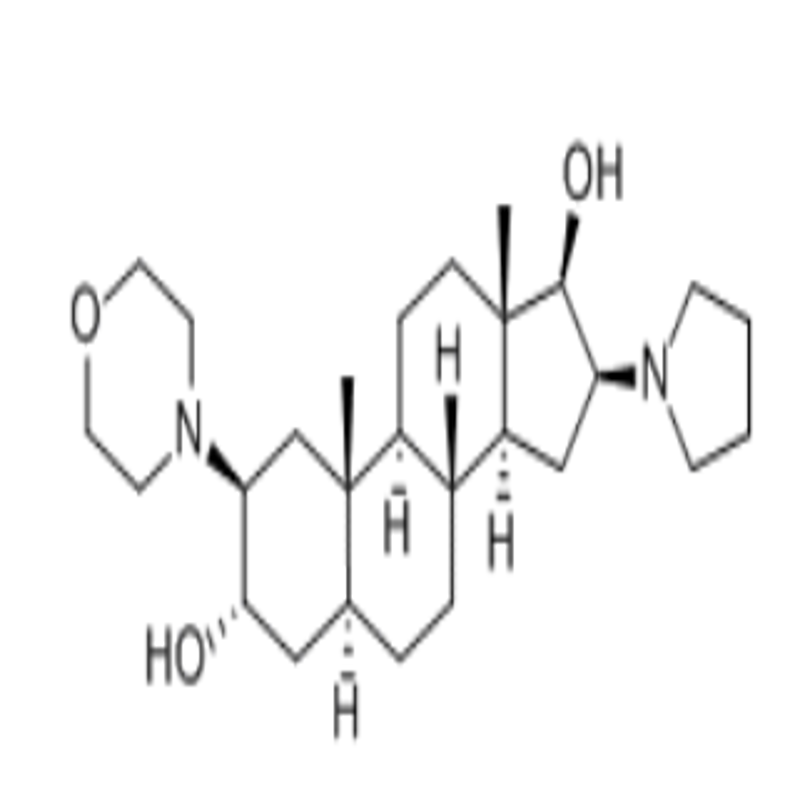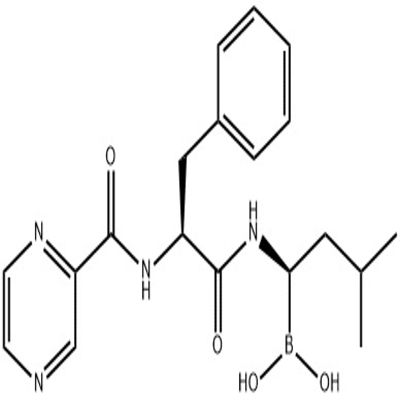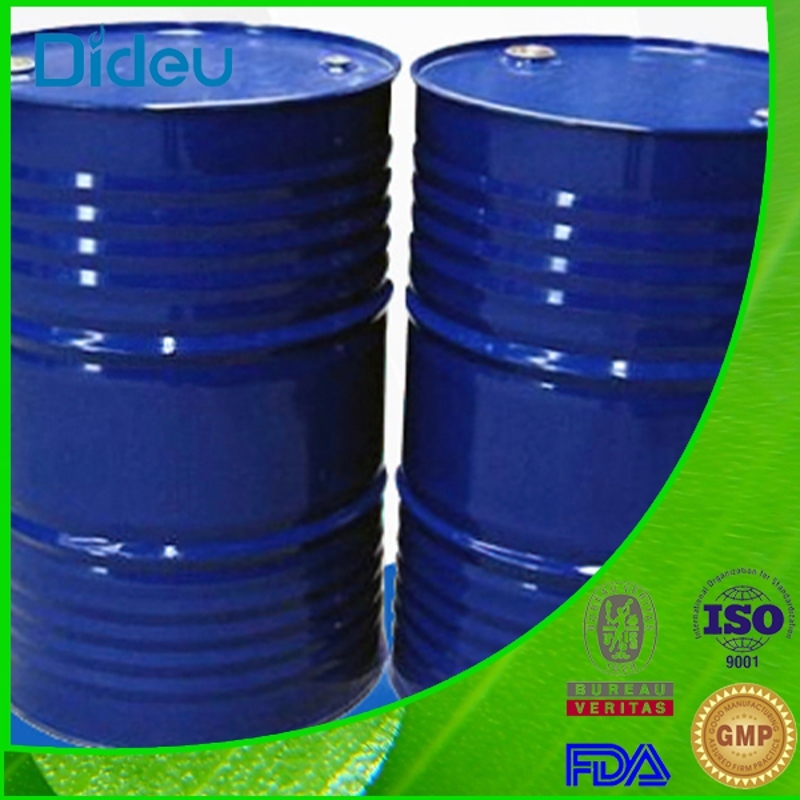-
Categories
-
Pharmaceutical Intermediates
-
Active Pharmaceutical Ingredients
-
Food Additives
- Industrial Coatings
- Agrochemicals
- Dyes and Pigments
- Surfactant
- Flavors and Fragrances
- Chemical Reagents
- Catalyst and Auxiliary
- Natural Products
- Inorganic Chemistry
-
Organic Chemistry
-
Biochemical Engineering
- Analytical Chemistry
-
Cosmetic Ingredient
- Water Treatment Chemical
-
Pharmaceutical Intermediates
Promotion
ECHEMI Mall
Wholesale
Weekly Price
Exhibition
News
-
Trade Service
Recently, new developments have been made in the study of Claudin 18.2 (CLDN 18.2) target. In May
, the world's first CAR-T therapy targeting CLDN 18.2 was approved for clinical use in the United States; On January 1, Amgen and Baiji Shenzhou filed a CD3/CLDN 18.2 double anti-clinical application in China, and Yusheng Group announced on the same day that CLDN 18.2 monotonica in a clinical trial in the United States completed the first patient-administered drug.
this series of advances, so that the CLDN 18.2 target once again attracted attention.
CLDN 18.2 is a tightly connected protein molecule that researchers have seen as a potential target for developing solid tumor immunotherapy such as stomach cancer.
no treatments for CLDN 18.2 have been approved worldwide.
, companies such as Astellas and Amin are developing CLDN 18.2 targeted therapy.
, according to incomplete statistics, in China, including Cozi Bio, Chongsheng Group, Osaikang Pharmaceuticals, including more than 10 companies have also laid out this area.
, what is the development potential of CLDN 18.2? Why is it so popular with pharmaceutical companies? The biological role of the Claudin protein is a tightly connected (tight junction) molecule.
close connection, also known as the locked band, is common in vertebrates of various epithelial and endothelial cells, in the gastrointestinal cortex between the connection stakes are particularly common.
structurally, the tight connection consists of rows of protein particles, which form a continuous fiber that closes the gap between adjacent cells, allowing only water molecules and ions to pass through small holes at the junction, making it difficult for macromolecules to pass through.
close connections have been shown to be the main determinant of cell bypass.
plays an important role in human life activities.
on the one hand, close connection can exercise the function of "barrier", the size and charge of the substance to choose, and then regulate the cell side of the way of the material transport.
for example, cerebrovascular endothelial cells can pass through this barrier to prevent blood from mixing with brain extracellular fluid, and so on.
on the other hand, close connection swells the function of "fence" and maintains the polarity of the cell by regulating the free dispersion of lipids and proteins between the two functional areas of the top and substrate side membranes. The structure of the
Claudin protein (Picture: References) Is structurally dependent on a complex consisting of transmembrane proteins, cytoplasm and other proteins, and its stability requires the coordinated activity of several different proteins, of which Claudin protein plays a major role.
Claudin protein was first discovered in 1998 and is a four-span membrane protein with a molecular weight of about 20 to 27 kDa, with the C and N ends convextoe to the cytoplasm side, as well as two extracellular domains ECL1 and ECL2.
studies have found that the closely connected Claudin protein is present in its subtype, and the closely connected permeability is regulated by the interaction between different Claudin protein subtypes.
Claudin 18.2 and cancer Claudins protein are mainly expressed in epithelial cells, and its function is mainly to regulate the permeability of the barrier structure.
studies have shown that changes in the expression of Claudin protein can lead to impaired close connection function, affect signaling pathways, and play a tumor-promoting role in some epithelial cancers.
Claudin protein has been found to be abnormally expressed in a variety of cancers, including stomach cancer, hepatocellular carcinoma, biliary cancer, breast cancer, kidney cell carcinoma, pancreatic cancer, non-small cell lung cancer and mesothelioma.
has so far identified at least 27 members of the Claudin protein family, of which CLDN 18 has two isomers, CLDN 18.1 and CLDN 18.2.
studies have shown that the expression of CLDN 18.2 protein is tissue-specific and is expressed mainly in stomach and stomach adenocarcinoma tissue.
in normal physiological conditions, CLDN 18.2 is expressed only in the differentiated epithelial cells on the gastric mucosa, but not in other healthy tissues.
however, in many primary gastric cancers and post-metastatic cancer types, CLDN 18.2 protein molecules have also been found to be expressed in large quantities, such as CLDN 18.2 proteins in 50%-80% of stomach cancer patients.
, in addition, in pancreatic cancer, esophageal cancer, ovarian cancer and other tumors, CLDN 18.2 also exists the phenomenon of active expression.
highly specific expression in normal tissues, combined with active expression in a variety of cancers, makes the CLDN 18.2 protein an ideal target for researchers to develop solid tumor immunotherapy such as gastric and pancreatic cancers.
no global approval of the target drug has been approved, and at least a dozen Chinese companies are developing CLDN18.2 as a potential target for the development of solid tumor-targeted therapies, but research progress in this area has been relatively mutineful.
it wasn't until 2016, when Ganymed announced the results of a clinical trial of its CLDN 18.2-embedded antibody zolbetuximab at the ASCO conference that CLDN 18.2, an anti-cancer molecular target, attracted wider industry attention, and Astellas immediately acquired Ganymed that year.
, according to incomplete statistics, in China, at least a dozen companies are developing innovative treatments that target CLDN 18.2, not only monotophosis, but also bi-resistance and CAR-T therapy.
the following excerpts from the world and China are developing in-the-drug information to be shared with readers.
1, zolbetuximab (IMAB362) drug action mechanism: CLDN 18.2 Antibody Company: Astellas IMAB362 is an antibody developed by Ganymed to target the CLDN 18.2 protein.
at the ASCO meeting in June 2016, Ganymed published data from a phase 2 clinical trial of zolbetuximab for gastric cancer patients, showing that zolbetuximab and chemotherapy increased the median total survival of patients from 8.4 months to 13.2 months;
the release of this stunning data made zolbetuximab the "black horse" at the ASCO meeting that year, and the CLDN 18.2 target has since attracted wider attention in the industry.
October 2016, Astellas successfully took down zolbetuximab's revenue by acquiring Ganymed for $1.4 billion.
ClinicalTrial.gov website, Zolbetuximab is currently conducting several clinical trials in tumors such as gastric cancer, gastric esophagus combination adenocarcinoma and pancreatic cancer.
include a Phase 3 clinical trial designed to assess the efficacy of zolbetuximab in combination with mFOLFOX6 first-line treatment CLDN 18.2 positive, HER2-negative local progression non-removable or metastatic gastric or gastroesophageal adenocarcinoma.
in China, Astellas has submitted a clinical trial application for zolbetuximab in November 2018 and has been approved for clinical trials for adaptation for a combination of platinum and fluorouretic-based chemotherapy for localized advanced non-removal or metastatic, CLDN 18.2 positive and HER2-negative adult gastric and gastroesophageal cancer patients.
2, AMG910 drug action mechanism: CD3/CLDN 18.2 bispecific antibody company: Amjin, Baiji Shenzhou AMG910 is a targeted CD3 and CLDN 18.2 dual antibody-specific drugs developed by Amjin.
worldwide, Amgen is conducting a Phase 1 clinical study to assess the safety, tolerance, pharmacokinetics and efficacy of Patients with CLDN 18.2-positive gastric and gastroesophageal adenocarcinoma patients with AMG 910.
in China, Amin and Baiji Shenzhou have jointly submitted a clinical trial application for AMG910, which was accepted by CDE on July 1 this year.
3, CT041, AB011 drug action mechanism: target CLDN18.2 CAR-T therapy, CLDN18.2 mono-resistance company: Cozi biological CT041 is a human-derived co-development of Cozi bio-developed Anti-CLDN 18.2 self-car T cell injection, to be developed to treat CLDN18.2 positive, past systematic treatment after progress or recurrence of advanced gastric adenocarcinoma / esophageal gastric binding adenocarcinoma, pancreatic cancer and other indications.
the clinical effectofs of CAR-T therapy have been proven in blood cancer, but the application bottleneck in solid tumors has yet to be broken, so CT041 is expected to bring new options for patients with solid tumors.
Based on the car-T clinical data released earlier by Cozibios in the treatment of gastric/pancreatic cancer: of the 12 patients treated, 8 experienced varying degrees of tumor decline, especially in an improved treatment subgroup, 5 of the 6 patients achieved objective remission (one of which was confirmed for objective remission) and one achieved complete remission.
in May this year, the drug was approved for clinical use in the United States, cozibiosis said in a press release, which is the first international trial license for CLDN 18.2 CAR-T cell candidate drug.
AB011 is a recombinant humanized anti-CLDN 18.2 monoclonal antibody injection developed by KozyBio, which was approved in Clinical Trials in China in December last year and is intended to be developed to treat patients with CLDN 18.2-positive solid tumors.
4, TST001 drug action mechanism: CLDN18.2 mono-anticompany company: Syngding Group TST001 is a subsidiary of The son group of Mybos Bio independent research and development of CLDN 18.2 humanized monoclonal antibody new drug, through High affinity-specific combination of CLDN 18.2 proteins, mediated antibody-dependent cytotoxicity (ADCC) and complement-dependent cytotoxicity (CDC) mechanisms, directly targeting the killing of CLDN 18.2-expressed tumor cells.
with advanced process technology, TST001's rock algal sugar modification ratio can be greatly reduced in production, further enhancing TST001's tumor killing activity.
In April this year, TST001 was approved for clinical trials in China and the United States.
in China, TST001 has been approved for clinical studies of single-drug or combined standard therapy for the treatment of CLDN18.2-positive advanced solid tumors, including, but not limited to, gastric/gastroesophageal combination adenocarcinoma, pancreatic catheter adenocarcinoma, bile duct cancer, etc. On July 1,
, Transingroup announced that TST001 had successfully completed the first patient administration in Phase 1 clinical study conducted in the United States, the main purpose of which was to assess the safety, tolerance and recommended dose of TST001 in subjects with advanced or metastatic solid tumors.
5, ASKB589 injection drug action mechanism: CLDN18.2 antibody company: Osekang Pharmaceuticals ASKB589 injection is Osekang independent research and development, with independent intellectual property rights of a human-derived CLDN 18.2 antibody, the drug in the research mainly through antibody-dependent cell toxicity (ACCD) and rehydration cell toxicity (CDC) anti-tumor tumor, intended for gastric and gastroesophageal combination cancer.
April this year, the drug has been approved for clinical treatment in China, clDN 18.2 positive local late or metastatic gastric and gastric esophagus binding adenocarcinoma, pancreatic cancer and other malignant solid tumors.
6, SPX-301, SPX-101 Drug Action Mechanism: CLDN 18.2/PD-L1 Double Resistance, CLDN 18.2 Mono-Resistant Company: Sparx TherapeuticsSPX-301 Yes Sparx developed a dual-specific antibody drug targeting both CLDN 18.2 and PD-L1, built using Sparx's SMARTOPTM model with independent intellectual property rights, and segmented optimization using its LEMMAbTM phage display technology.
it is understood that this is by far the world's first CLDN 18.2/PD-L1 double specific antibody.
at the AACR meeting in June, Sparx released preclinical research data on the drug.
animal experiments showed that SPX-301 had similar pharmacodynamic characteristics to monoclonal antibodies, and the level of anti-drug antibodies (ADA) in mice was very low, so it was possible that immunogenicity and safety were good.
mice inoculation experiments showed that SPX-301 can effectively inhibit the growth of MC38 tumors with stable expression OF CLDN 18.2.
SPX-101 is a CLDN 18.2 mono-resist developed by Sparx.
preclinical studies showed that SPX-101 had a high affinity for CLDN 18.2, and SPX-101 was positively correlated with the intake of 803 cells of stomach cancer and the expression level of CLDN18.2.
In addition, the drug dynamics characteristics of PX-101 in mice and rats were also ideal, not only with a longer half-life and a lower level of anti-drug antibodies.
mouse vaccination models showed that SPX-101 performed well in tumor suppression in at least two tumor models.
note, in November 2018, Kun PharmaceuticalGroup has signed an agreement with Sparx to develop a new clDN 18.2 humanized monoclonal antibody drug for the treatment of stomach cancer.
, Sparx will be responsible for cell construction, screening, candidate antibody preparation and validation.
In addition to the above-mentioned companies, a number of Chinese pharmaceutical companies are developing antibody drugs for CLDN 18.2, including Tianguangshi Bio,







